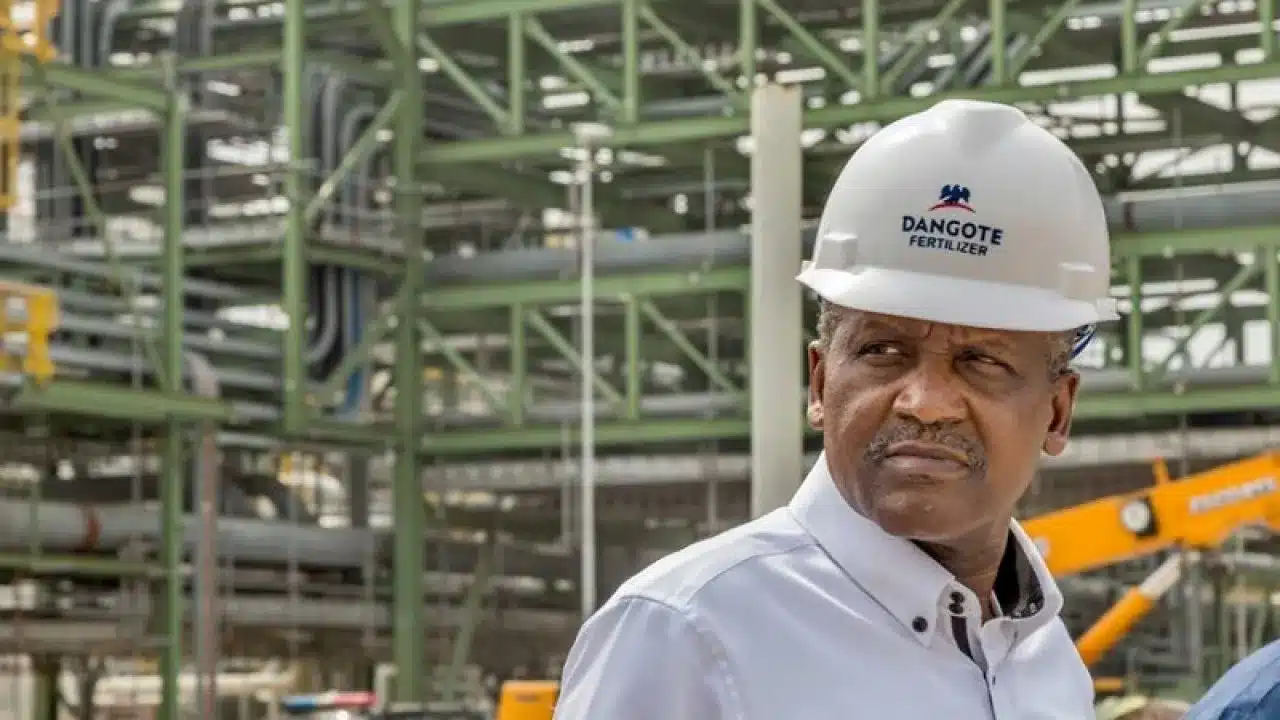
Expansion to double production capacity, create 65,000 jobs, and bolster Nigeria’s energy security….
Africa’s richest man, Aliko Dangote, President of Dangote Industries Limited, has announced plans to expand his Lagos-based petroleum refinery, projecting that its revenue could surpass $55 billion annually, positioning it as one of the continent’s most valuable industrial assets.
The announcement coincides with the new Afreximbank President, George Elombi, revealing that the bank is considering a $5 billion expansion credit to support the refinery’s growth. Dangote welcomed the proposed capital injection, emphasizing that the expansion will strengthen regional energy security and reduce petroleum prices in West Africa by nearly half, according to Afreximbank.
World-Leading Production Capacity
The refinery has signed an agreement with its technology licensor to expand production from 650,000 barrels per day (bpd) to 1.4 million bpd within the next three years. Upon completion, the Dangote Refinery will surpass Reliance Refinery in India (1.36 million bpd), making it the largest in the world.
“We are officially expanding the Dangote Refinery. This move demonstrates confidence in Nigeria’s economic future and Africa’s industrial potential,” Dangote said during a press briefing in Lagos.
The expansion aligns with President Bola Tinubu’s vision of making Nigeria a leading exporter of refined petroleum products in Africa and beyond.
Economic and Social Impact
Dangote revealed that the project would create over 65,000 jobs during construction and double polypropylene production from 900,000 metric tonnes to 2.4 million tonnes annually. The refinery will also upgrade fuel standards from Euro 5 to Euro 6, meeting global environmental benchmarks.
“Over 85 percent of our workforce will be Nigerian, with ongoing investment in skills and technology transfer. Our goal is not just to refine oil, but to refine opportunities for our people,” he said.
Power generation at the plant will increase from 500 megawatts to 1,000 megawatts, ensuring reliable energy for operations and nearby industries.
Strategic Approach and Feedstock Security
Dangote explained that the expansion will add an additional processing line, allowing production to continue during maintenance shutdowns. He expressed optimism about crude oil supply, citing new government policies to prevent crude exports while domestic refineries remain idle.
“It’s like Ghana saying they want to process all their cocoa while still exporting raw beans. This policy ensures refineries like ours get the feedstock needed for continuous production,” Dangote said.
With Nigeria’s crude production currently around 1.8 million bpd and government targets set at 2.4 million bpd, Dangote said there would be enough supply for local refiners.
Encouraging Broader Investment
Dangote called on other investors to participate in expanding local refining capacity, stressing that competition will strengthen the sector. While he declined to acquire government-owned refineries, he encouraged private investment partnerships to revive dormant plants.
The refinery is also slated for a public listing on the Nigerian Exchange (NGX) within a year, giving Nigerians the opportunity to own shares in the facility.
Boosting Energy Security and Reducing Import Dependence
Dangote emphasized that the expansion would stabilize fuel availability and pricing, especially during festive seasons, while also reducing foreign exchange outflows by minimizing refined fuel imports.
“This expansion is not just about increasing capacity; it reflects our confidence in Nigeria, its leadership, and the potential of our continent,” he said.
The project will be executed over the next three years, financed through a combination of cash flow, strategic investors, and public listing.
Dangote concluded by highlighting the broader economic vision: “Together, we’re building a stronger Nigeria and redefining what is possible for Africa.”



